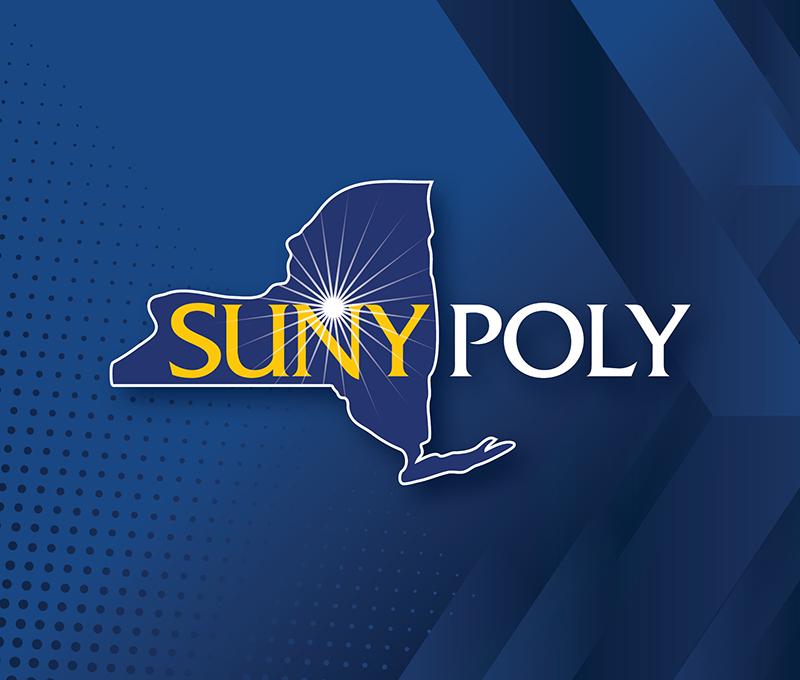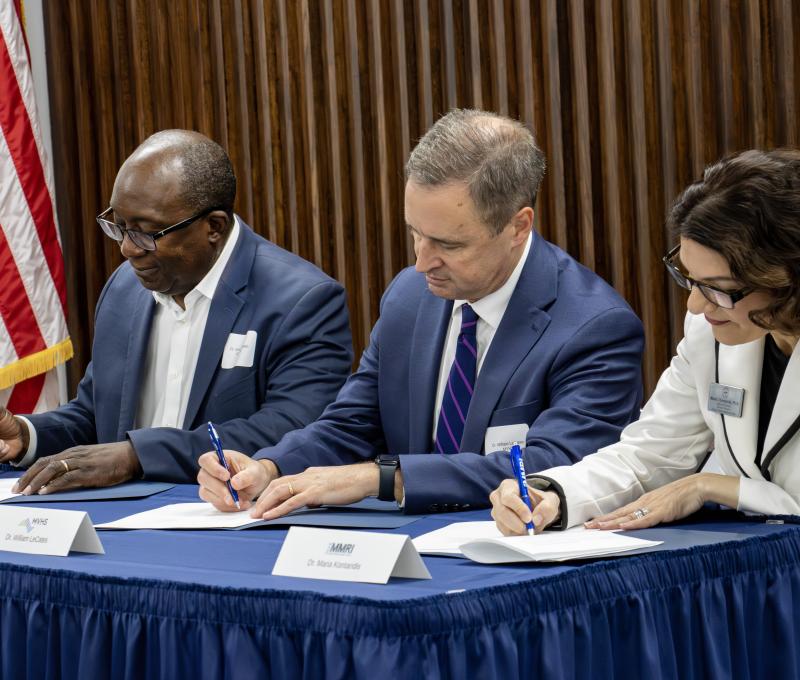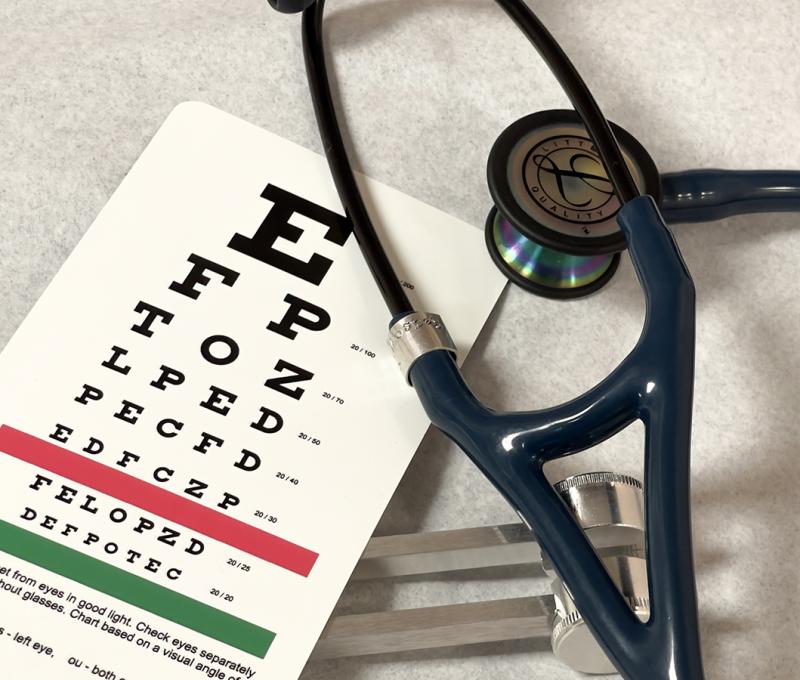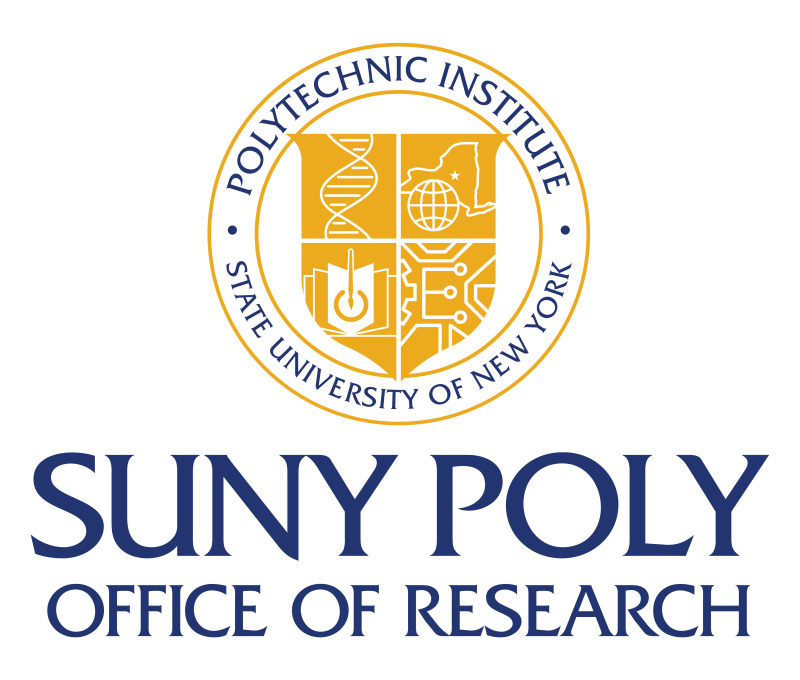News Release: SUNY Poly Researchers Receive $1 Million in Awards from SUNY to Spur Innovative Research Opportunities

For Release: Immediate – August 14, 2019
Contact: Steve Ference, Director of University Communications | (518) 956-7319 | sference@sunypoly.edu
Funds to Act as Seed Grants Over Three Years to Encourage Novel Research Efforts at SUNY Poly, Ranging from Quantum Information Science to Advanced Manufacturing
ALBANY AND UTICA, NY – SUNY Polytechnic Institute (SUNY Poly) announced today $1 million in seed grants over three years to support the growth of research efforts among the institution’s faculty. In its first year, the funding from SUNY provided 27 seed grants to faculty members, covering a wide variety of areas, from quantum information science, which could lead to the development of novel quantum materials and new computational frameworks within quantum computational applications, to advancements in nanobioscience, which could lead to a better understanding of factors playing a role in DNA stability.
“SUNY is proud to directly support research that is advancing technologies and biological systems which could significantly improve our way of life, everything from enabling innovative sensors that can reduce harmful greenhouse gases to ensuring more robust next-generation communications,” said SUNY Chancellor Kristina M. Johnson. “By providing these seed grants to our resident faculty experts, we are continuing to actualize SUNY’s legacy of pioneering research that holds incredible promise. I congratulate each researcher on their award.”
“I am proud that through this invaluable seed grant program, SUNY has recognized the potential of these exciting SUNY Poly research efforts, which can have critical implications for future technologies and our health,” said SUNY Poly Interim President Dr. Grace Wang. “On behalf of SUNY Poly, I congratulate each of these accomplished faculty members on receiving their respective awards, which are great examples of the types of leading-edge, cross-campus, collaborative research that holds the promise to catalyze important societal advancements as it underscores the depth and breadth of our faculty’s areas of expertise.”
“I congratulate each of SUNY Poly’s researchers whose projects were selected for SUNY seed grants. This program simultaneously highlights the top-tier talent of this institution’s faculty as it allows them to explore important cutting-edge topics in quantum information science and technology, advanced and additive manufacturing, and nanobioscience topics that can help create exciting avenues for exploration of new ways to solve and/or inform solutions to the challenges currently faced by our global society,” said SUNY Poly Interim Vice President of Research Advancement and Graduate Studies Dr. Shadi Shahedipour-Sandvik. “Combined with SUNY Poly’s world-class facilities and resources, we are thrilled that SUNY is leading the way in powering New York State-based research that can have global impact while providing educational opportunities to students who will continue to take part in such hands-on research projects to gain highly relevant, first-hand academic and lab experience.”
Among the projects being pursued under the faculty seed grant program, the research includes:
- Many of the seed grants were awarded to faculty pursuing strategic research initiatives related to Quantum Information Science. This includes proposed projects by Assistant Professor of Applied Mathematics Emilio Cobanera, who is seeking to answer, “Does non-equilibrating thermal dynamics make topological quantum memories viable?” While quantum computers require a quantum memory, it is still an open problem to find a material that could be used to build a quantum memory as successful as the memory on your classical desktop computer. Dr. Cobanera's research exploits methods of theoretical physics to look for materials that could be used to build quantum memories that are functional in realistic conditions and do not need constant monitoring or error correction.
- Assistant Professor of Computer Science Dr. Chen-Fu Chiang’s research is focused on “Quantum Walkers for Near-Term Quantum Technologies,” in which Dr. Chiang will write software to “automate reducible graph identifiers and coupling factor finder with optimal proof for Continuous Time Quantum Walkers,” and establish efficient quantum pseudo random number generation (PRNG) via discrete time quantum walkers on variant structures. Overall, the written software will be used to identify problems, such as search and optimization, that can be reduced such that solving these problems is feasible using near-term quantum technology, and the quadratic speed up in finding solutions is preserved, in comparison to its classical counterpart. Additionally, the quantum walk PRNG can generate bit streams (0’s and 1’s) that pass the randomness test (such as the NIST randomness test software), providing direct applications for cryptography and cyber security.
- Two projects aim at strengthening and highlighting SUNY Poly’s collaborative ecosystem, led separately by Associate Professor of Nanobioscience Dr. Michael Fasullo and Associate Professor of Mathematics Dr. William Thistleton. Dr. Fasullo’s “Regulation of Deoxynucleotide Levels by tRNA Modification in Budding Yeast and Cancer Cells,” will allow researchers at SUNY Poly to measure picomolar concentrations of critical factors required for maintaining DNA stability, potentially leading to a broader understanding of aging, senescence, and neural degeneration.
- Dr. Thistelston’s project will focus on an “Industrial Internet of Things Cyber Physical System for Selective and Sensitive Sensor Test Stations.” This interdisciplinary team is working to make sure that remote sensor systems can measure and analyze the chemical composition of a fast moving, high temperature gas and securely communicate with other parts of the systems like Solid Oxide Fuel Cells, which are used to generate power from biofuels that are far away, to manage the chemical flow.
- Some of the seed projects continue to build on the industry relevant tradition of Poly’s research. Associate Professor of Nanobioscience Dr. Janet Paluh’s project consists of collaboration between SUNY Poly, the University at Buffalo, and industry (Cytocybernetics). The “Neuronal Circuitry Platform for Therapeutic Cell Optimization” project will allow neuronal circuitry formation in vitro with direct measurement and live tracking of synaptic activity. This cutting-edge platform will accelerate combining multi-cell therapies and microenvironment treatments into a transplantation package optimized for integration and retention of circuits in vivo. The most recent advances in modulating neural cell communication networks and inflammation/injury recovery will be implemented; immediate applications of this translational research include spinal cord injury, traumatic brain injury, and neurodegeneration to improve patient outcomes and quality of life.
- Crossing scientific disciplines is particularly highlighted via a project by Associate Professor of Mathematics Dr. Edmond Rusjan, entitled, “Geometric Reconstruction of Vascular Tree Networks for Blood Flow Analysis.” As part of this effort, Dr. Rusjan will initiate an interdisciplinary approach for geometric Vascular Tree Network (VTN) reconstruction by combining the best features of physically based mathematical modeling and machine learning with the aim of providing a quantitative representation of the biophysical processes in the eye. This could lead to earlier diagnosis and improved treatments of ocular diseases, cardiovascular disease, and more generally, diseases such as diabetes, which have adverse effects on the cardiovascular system.
Additionally, and as a result of the SUNY Seed Grant funding, SUNY Poly also awarded three prestigious “Poly Pride Prizes” to Associate Professor of Nanobioscience Dr. Scott Tenenbaum, Professor of Nanobioscience Dr. Nate Cady, and Associate Professor of Nanoengineering Dr. Woongje Sung. Established to celebrate the institution’s researchers with the highest extramural funding, The Poly Pride Prize was given to those who received more than $1.5 million in new funding between 2017-2019 to facilitate investment in new research directions that they desire to undertake.
####################
About SUNY Polytechnic Institute (SUNY Poly)
SUNY Poly is New York’s globally recognized, high-tech educational ecosystem. SUNY Poly offers undergraduate and graduate degrees in the emerging disciplines of nanoscience and nanoengineering, as well as cutting-edge nanobioscience programs at its Albany campus, and undergraduate and graduate degrees in technology, including engineering, cybersecurity, computer science, and the engineering technologies; professional studies, including business, communication, and nursing; and arts and sciences, including natural sciences, mathematics, humanities, and social sciences at its Utica campus; thriving athletic, recreational, and cultural programs, events, and activities complement the campus experience. As the world’s most advanced, university-driven research enterprise, SUNY Poly boasts billions of dollars in high-tech investments and hundreds of corporate partners since its inception. For information visit www.sunypoly.edu.








